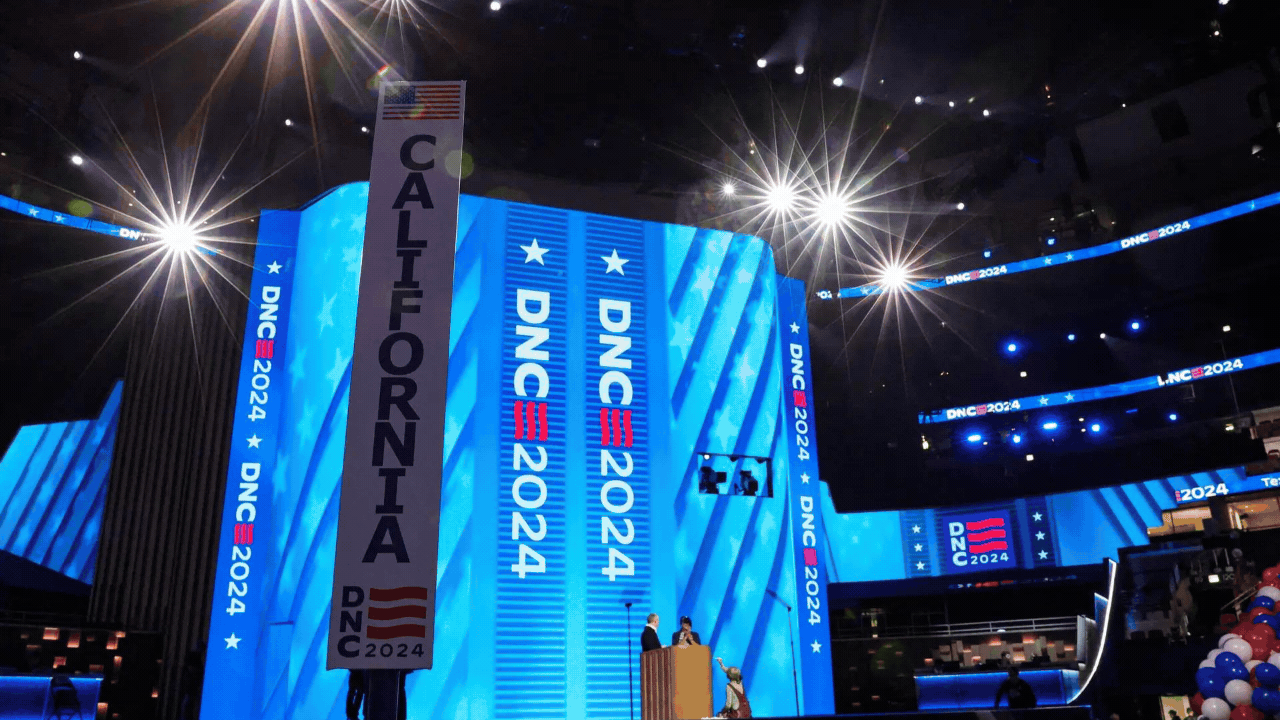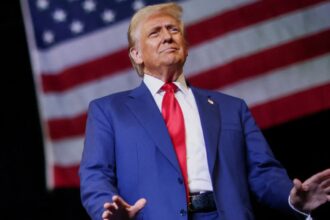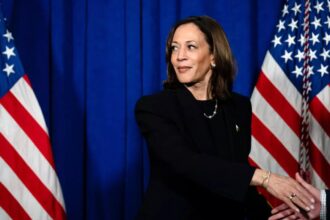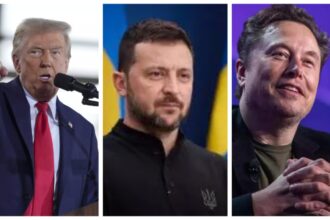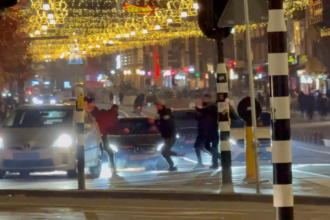Activists have drawn inspiration from the demonstrations at last month’s Republican National Convention in Milwaukee and are anticipating even larger turnouts in Chicago, a city renowned for its deep roots in social activism.
Illinois Governor J B Pritzker expressed confidence that the protests would remain peaceful, dismissing any comparisons to the violent clashes of the 1968 Democratic convention in Chicago. “If there are troublemakers, they’re going to get arrested and they’re going to get convicted,” Pritzker said during an appearance on CNN’s “State of the Union.”
Focus on Gaza ceasefire
The demonstrations are expected to take place daily throughout the convention, with many activists prioritizing an immediate ceasefire in the Israel-Hamas war. The protests will commence on Sunday, the eve of the convention, with an abortion rights march along Chicago’s iconic Michigan Avenue.
Organizer Linda Loew emphasized the global significance of reproductive rights and criticized U.S. military spending, stating, “We believe that the billions of dollars that continue to flow to the state of Israel and the flow of weapons are having an inordinate and horrific impact, but in particular on women, children, and the unborn.”
The Coalition to March on the DNC, the largest of the activist groups, has planned demonstrations for the first and last days of the convention. Organizers expect at least 20,000 participants, including students who have protested the Gaza war on college campuses.
“The people with power are going to be there,” said Liz Rathburn, a student organizer from the University of Illinois Chicago. “People inside the United Center are the people who are going to be deciding our foreign policy in one way or another.”
Legal battles over protest sites
Activists sued the city of Chicago earlier this year, arguing that restrictions on protest locations violated their constitutional rights. Initially, city officials denied requests for permits to protest near the United Center, where the convention is being held, offering instead a location over three miles away.
However, a subsequent agreement allowed demonstrations at a park closer to the United Center, with a federal judge approving a roughly 1-mile march route. Despite this, Coalition to March on the DNC spokesman Hatem Abudayyeh expressed concerns about the safety of the shorter route but remained committed to the cause. “We’re going forward, full speed ahead,” he said.
The city has also designated a park near the United Center for speakers, who will each have 45 minutes to address the crowd. Additionally, the Philadelphia-based Poor People’s Army, which advocates for economic justice, plans to establish a base at Humboldt Park on the city’s Northwest Side. They will host events featuring third-party candidates Jill Stein and Cornel West and will lead a 3-mile march to the United Center on Monday.
“Poor and homeless people are being brutalized, with tents and encampments destroyed and bulldozed away, from San Francisco to Philadelphia to Gaza and the West Bank,” said spokesperson Cheri Honkala, as the group reached Illinois after marching over 80 miles from Milwaukee, where they protested during the Republican convention.
Harris’ nomination and activist response
Despite the upcoming nomination of Kamala Harris, many activists believe there will be little change in policy direction. Erica Bentley, an activist with Mamas Activating Movements for Abolition and Solidarity, stated, “The demands haven’t changed. I haven’t seen any policy changes. If you’re going to be here, you’re going to have to listen to what’s important to us.”
Pro-Palestinian protesters have been particularly visible in Chicago, organizing roadblocks and sit-ins at congressional offices. Some plan to hold a one-day convention on Sunday with third-party candidates, protesting what they describe as the Democrats’ “vicious policies” that have enabled Israel’s actions in Gaza. “Regardless of who the nominee is, we’re marching against the Democrats and their vicious policies that have allowed Israel to kill over 40,000 Palestinians in Gaza,” said Fayaani Aboma Mijana of the Chicago Alliance Against Racist and Political Repression.
Security and preparations
Chicago is preparing to host an estimated 50,000 people during the convention, including delegates, activists, and journalists. The city, in collaboration with police and the Secret Service, has implemented extensive security measures, including street closures around the convention center.
Mayor Brandon Johnson assured that the city is ready to handle the influx and any potential disruptions. “We’re going to make sure that people have their First Amendment rights protected, that they can do that in a safe way,” Johnson said in an interview with The Associated Press.
The city has also made efforts to beautify the area around the convention center, including planting flowers and installing new signs. Nearby homeless encampments have been cleared, and local hospitals have increased their emergency preparedness in anticipation of the event.
Activist Hy Thurman, who was arrested during the 1968 convention, plans to return to Chicago to protest the Gaza war. “It’s extremely personal for me,” the 74-year-old said. “I see parallels.”
Source : Times of India



